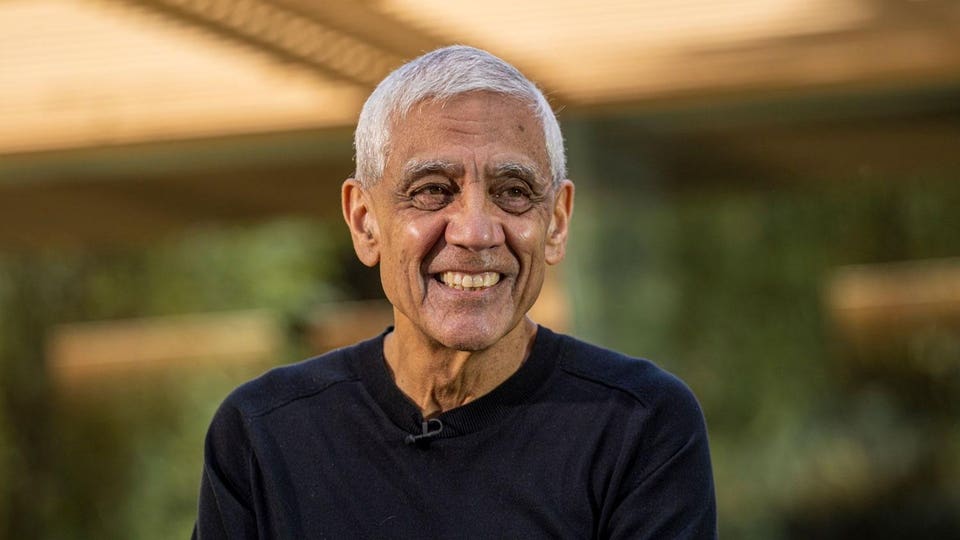Entrepreneur and venture capitalist, Vinod Khosla. The speaker of this quote is legendary U. S.
entrepreneur and venture capitalist, Vinod Khosla, founder and head of the Silicon Valley venture capital firm Khosla Ventures. Last month I had a chance to virtually interview Khosla for a live audience of about 450 entrepreneurs from Singapore and nearby, while the online audience was global and in the thousands. Khosla’s fame in tech startup circles requires only the name “Vinod”—his success spans four decades.
In 1982, the Pune, India-born U. S. immigrant and three others started Sun Microsystems, which pioneered networked computers.
Khosla then switched to investing. Early win: Juniper Networks in 1996 and now a $5. 6 billion revenue company.
pegs Khosla’s current net worth at $6. 4 billion (late November). His optimism is refreshing: “I am totally convinced that the crises we’ve had will result in the best 25 years for innovators and entrepreneurs.
” Khosla elaborates: “First, the two most unfortunate events in the last couple of years, Ukraine and Covid-19, have set in motion transitions that are huge opportunities for innovators. The Ukraine invasion from my point of view started an energy transition, which was barely moving, one the world knew we had to do, but which everybody was reluctant to do. And that has changed dramatically .
. . Covid-19 with its lockdowns in China has convinced the world we have to move the supply chain out of China, not completely, but not be dependent on a single source.
That again will be a huge opportunity for innovators . . .
the third leg of the stool is the breakthroughs in AI, which have been pretty obvious to me for the last five years when we invested in [the company] OpenAI. ” What explains AI’s big acceleration right now, I ask? Khosla replied that a 2017 paper by Google called outlined a new computational model named transformer, which radically improved AI, which was further enhanced by advances in computing power. “Those two technical factors resulted in rapid increase in capabilities, frankly, that have surprised even me,” says Khosla.
As AI becomes increasingly ubiquitous, cheap and powerful, humanity will reap dramatic benefits, he says. “So let’s look at the world going forward. I believe expertise will be free.
What does that mean? I think every person on the planet can have a primary care doctor 24/7 for near free. Every kid on the planet can have a personal tutor that can be near free,” predicts Khosla, adding that he believes there will be 1 billion bipodal robots created in the next 25 years that will replace humans in most “undesirable jobs” such as working on an assembly line “doing one thing for eight hours a day for 30 years in a row. ” I then asked Khosla if today’s entrepreneurs are different than from those he funded in the past.
He felt that entrepreneurs are more ambitious today. The world’s challenges and opportunities are so much bigger today, he notes, and only entrepreneurs will solve these problems. He outlined how all “large innovation” has always come from startups not big companies—biotech was pioneered by Bob Swanson at Genentech and the EV revolution was sparked by Elon Musk at Tesla.
“In the 40 years that I’ve watched it, no major innovation has ever come from any large company,” he declares. We concluded our talk with Khosla putting the responsibility on entrepreneurs in the audience to innovate: “A much better world can only happen if entrepreneurs make it happen. ” Double click on that.
.
From: forbes
URL: https://www.forbes.com/sites/richkarlgaard/2023/12/07/vinod-khosla-on-ais-fast-rise-robotics-entrepreneurs-and-innovation/



